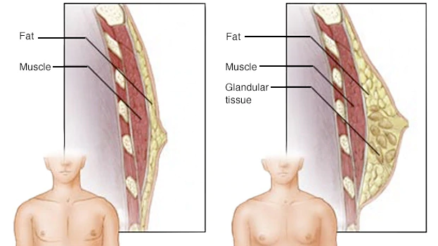Whether you’re a runner, bodybuilder, or busy mom trying to keep up with your kids, you probably have fitness goals. However, sometimes your progress toward those goals stagnates, leaving you wondering where you’ve gone wrong.
While everyone has different exercise regimens, there are a few common reasons people struggle to reach their goals. Here are six reasons your workouts may not be working for you.
1. Your Hormones Are Out of Whack
Contrary to popular belief, weight loss isn’t always as simple as moving more and eating less. Our bodies rely on a complex network of hormones to control hunger, sexual functions, and stress. If one of these hormones is too high or low, it can be challenging to lose weight.
If you think you may be dealing with a hormonal imbalance, it’s a good idea to visit your doctor. Different medications have different impacts on your hormones. Your doctor will be able to identify which hormones are off and prescribe the best medicine to manage them. Examples of medication they may prescribe include the birth control pill, thyroid medication, or GLP-1.
2. You’re Not Getting Enough Rest
When you have a fitness goal, it’s tempting to exercise every day. However, intense daily workouts can do your body more harm than good. Overexercising not only increases your risk of injury, but can also increase inflammation.
To help prevent overexercising, add active recovery days and rest days to your weekly routine. Active recovery days still require you to move; however, the exercise you choose should be low intensity. This could look like a walk in the park with your family or some laid-back living room yoga.
A rest day is exactly what it sounds like: a day that allows your body to recuperate. Rest days are a great opportunity to treat your body to a little TLC. This may involve catching up on extra sleep or taking a hot Epsom salt bath to reduce muscle soreness.
3. You Haven’t Changed Your Diet
You’ve probably heard the saying, “You can’t out-exercise a bad diet,” and it’s true. While exercise is a huge component of wellness, so is the food you eat. If you stick to a workout regimen but eat junk food every night, you won’t see your body composition change.
This doesn’t mean you’re never allowed to have a treat; just be mindful about when and why you’re eating it. For example, a slice of cake to celebrate your kid’s birthday is perfectly OK. Your child only has one birthday a year, and a single piece of cake won’t derail your fitness goals.
On the other hand, indulging in a carton of ice cream every night is a daily habit that routinizes excess calorie consumption. Even with exercise, too many daily calories will increase your body fat percentage.
4. You Aren’t Tracking the Right Metrics
It can be disheartening when you hop on the scale and see the number hasn’t budged. However, that doesn’t mean your body hasn’t changed. Weight alone isn’t always the best metric to track if you’re trying to get in better shape.
Your body weight can fluctuate up to six pounds per day depending on your recent food intake, exercise, and sleep. Furthermore, the scale doesn’t differentiate between muscle and fat. So if you lost a pound of fat and gained a pound of muscle, the scale would show no change. That’s why it’s important to look at your body more holistically.
Instead of relying on the scale, consider how your body looks or how your clothes fit. Small changes are hard to notice day-to-day. So monthly progress photos can help you track your fitness transformation over time.
5. You’re Under Too Much Stress
From busy workdays to chaotic personal schedules, managing life is stressful for everyone. However, it can be challenging to shed unwanted fat if you’re under too much stress. When your body is stressed, you produce a hormone called cortisol. Over time, constant exposure to increased cortisol levels can make you gain weight around the abdomen.
To help combat increased cortisol, reducing stress is essential. Most people can’t quit their jobs or ignore their family obligations, but you can decrease the intensity of your workouts. Exercise itself is a stressor on the body. While it is a positive stressor, it may do your body more harm than good if you’re having a particularly challenging week. When you’ve been extra busy at work or dealing with family drama, skip the HIIT class and opt for yoga instead.
6. You’re Not Giving It Enough Time
When people decide to get in shape, they often expect immediate results. However, increasing your fitness takes time. Most experts agree that 1-2 pounds a week is a safe weight loss goal. But for many people, half a pound a week is more reasonable. This means if you want to lose 20 pounds, it could take up to 40 weeks to reach your goal.
Since weight loss takes a while, it’s important to find a workout regimen you can stick to long-term. If you hate running or HIIT, chances are you won’t follow through with your workouts. Instead, focus on a form of movement that brings you joy and schedule time for that activity a few days each week.
There are many reasons you might not see progress toward your fitness goals. Keep these reasons in mind as you make adjustments to your program. Remember, getting healthy is a marathon, not a sprint.





